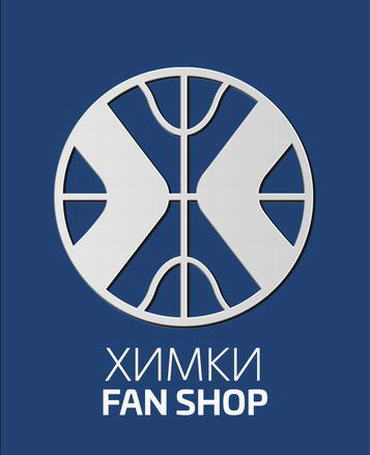Clubs, domestic leagues and Euroleague Basketball hold working group on future of European club competitions 15 march 2016
Euroleague.net
A selection of the top European clubs and domestic leagues, meeting in Barcelona on Monday, approved a final competitions structure to be submitted to the next Euroleague Commercial Assets Shareholders Meeting.
As had been agreed at their previous meeting on January 27, Euroleague Basketball invited the clubs back in order to present additional details about the proposed competition system, structure and future evolution of both the Euroleague and Eurocup, as well as to discuss their role within the roadmap for growth of the IMG/Euroleague Join Venture's project that will feature 40 professional basketball clubs and will mark the start of a new era for basketball in Europe. Four key domestic leagues joined the discussions.
The club and league executives learned about the latest developments in the conversations that Euroleague Basketball has held, and also about the draft proposal for the allocation of places in both competitions from the 2016-17 season onwards.
The attendees agreed to propose allocation criteria that will see four domestic leagues (Adriatic League, German League, Spanish League and VTB United League) gaining direct, B Licence access to the Turkish Airlines Euroleague, joining the 11 A Licence clubs (Anadolu Efes Istanbul, CSKA Moscow, EA7 Emporio Armani Milan, FC Barcelona Lassa, Fenerbahce Istanbul, Laboral Kutxa Vitoria Gasteiz, Maccabi FOX Tel Aviv, Olympiacos Piraeus, Panathinaikos Athens, Real Madrid and Zalgiris Kaunas) and the Eurocup champion in the competition. Euroleague Basketball also informed the clubs and domestic leagues about the criteria for a potential future expansion of the competition.
This structure would commence in the 2016-17 season, with the exception of the Spanish League's B Licence allocation. For the 2016-17 season only this spot will be filled with a wild card, whilst starting with the 2017-18 season the place will revert to the Spanish League.
For the Eurocup, the same four domestic leagues would earn at least three spots each in the competition. The domestic league agreements would be valid for four seasons. The rest of the available spots will be completed through individual agreements with clubs coming from France, Greece, Italy, Lithuania and Turkey, amongst others. Clubs will be invited based on identifying projects that are stable and strong both from sports and business standpoints.
The proposed Euroleague and Eurocup competition structure will be submitted to the upcoming Euroleague Commercial Assets Shareholders Meeting for approval.
Furthermore, Euroleague Basketball executives explained the impact that the new project will have on the Eurocup's economic framework, and more concretely about guaranteed revenues that participating clubs will obtain through operational coverage of expenses, as well as a clubs economic distribution via sports pool.
Finally, all attendees exchanged thoughts on other topics relevant to the present and future of European club competitions.
Clubs and domestic leagues present at the meeting were: Cedevita Zagreb (Croatia); Limoges CSP and Strasbourg (France); ALBA Berlin, Brose Baskets Bamberg and FC Bayern Munich (Germany); Aris Thessaloniki (Greece); Dinamo Banco di Sardegna Sassari, Grissin Bon Reggio Emilia and Dolomiti Energia Trento (Italy); Lietuvos Rytas Vilnius and Neptunas Klaipeda (Lithuania); Khimki Moscow Region (Russian Federation); Crvena Zvezda Telekom Belgrade and Partizan NIS Belgrade (Serbia); Herbalife Gran Canaria Las Palmas, Unicaja Malaga and Valencia Basket (Spain); Besiktas Sompo Japan Istanbul and Galatasaray Odeabank Istanbul (Turkey); the Adriatic Basketball Association; the Asociacion de Clubs de Baloncesto, the Basketball Bundesliga GmbH and the United Basketball League.
The club and league executives learned about the latest developments in the conversations that Euroleague Basketball has held, and also about the draft proposal for the allocation of places in both competitions from the 2016-17 season onwards.
The attendees agreed to propose allocation criteria that will see four domestic leagues (Adriatic League, German League, Spanish League and VTB United League) gaining direct, B Licence access to the Turkish Airlines Euroleague, joining the 11 A Licence clubs (Anadolu Efes Istanbul, CSKA Moscow, EA7 Emporio Armani Milan, FC Barcelona Lassa, Fenerbahce Istanbul, Laboral Kutxa Vitoria Gasteiz, Maccabi FOX Tel Aviv, Olympiacos Piraeus, Panathinaikos Athens, Real Madrid and Zalgiris Kaunas) and the Eurocup champion in the competition. Euroleague Basketball also informed the clubs and domestic leagues about the criteria for a potential future expansion of the competition.
This structure would commence in the 2016-17 season, with the exception of the Spanish League's B Licence allocation. For the 2016-17 season only this spot will be filled with a wild card, whilst starting with the 2017-18 season the place will revert to the Spanish League.
For the Eurocup, the same four domestic leagues would earn at least three spots each in the competition. The domestic league agreements would be valid for four seasons. The rest of the available spots will be completed through individual agreements with clubs coming from France, Greece, Italy, Lithuania and Turkey, amongst others. Clubs will be invited based on identifying projects that are stable and strong both from sports and business standpoints.
The proposed Euroleague and Eurocup competition structure will be submitted to the upcoming Euroleague Commercial Assets Shareholders Meeting for approval.
Furthermore, Euroleague Basketball executives explained the impact that the new project will have on the Eurocup's economic framework, and more concretely about guaranteed revenues that participating clubs will obtain through operational coverage of expenses, as well as a clubs economic distribution via sports pool.
Finally, all attendees exchanged thoughts on other topics relevant to the present and future of European club competitions.
Clubs and domestic leagues present at the meeting were: Cedevita Zagreb (Croatia); Limoges CSP and Strasbourg (France); ALBA Berlin, Brose Baskets Bamberg and FC Bayern Munich (Germany); Aris Thessaloniki (Greece); Dinamo Banco di Sardegna Sassari, Grissin Bon Reggio Emilia and Dolomiti Energia Trento (Italy); Lietuvos Rytas Vilnius and Neptunas Klaipeda (Lithuania); Khimki Moscow Region (Russian Federation); Crvena Zvezda Telekom Belgrade and Partizan NIS Belgrade (Serbia); Herbalife Gran Canaria Las Palmas, Unicaja Malaga and Valencia Basket (Spain); Besiktas Sompo Japan Istanbul and Galatasaray Odeabank Istanbul (Turkey); the Adriatic Basketball Association; the Asociacion de Clubs de Baloncesto, the Basketball Bundesliga GmbH and the United Basketball League.
Source
http://www.euroleaguebasketball.net/euroleague-basketball...



